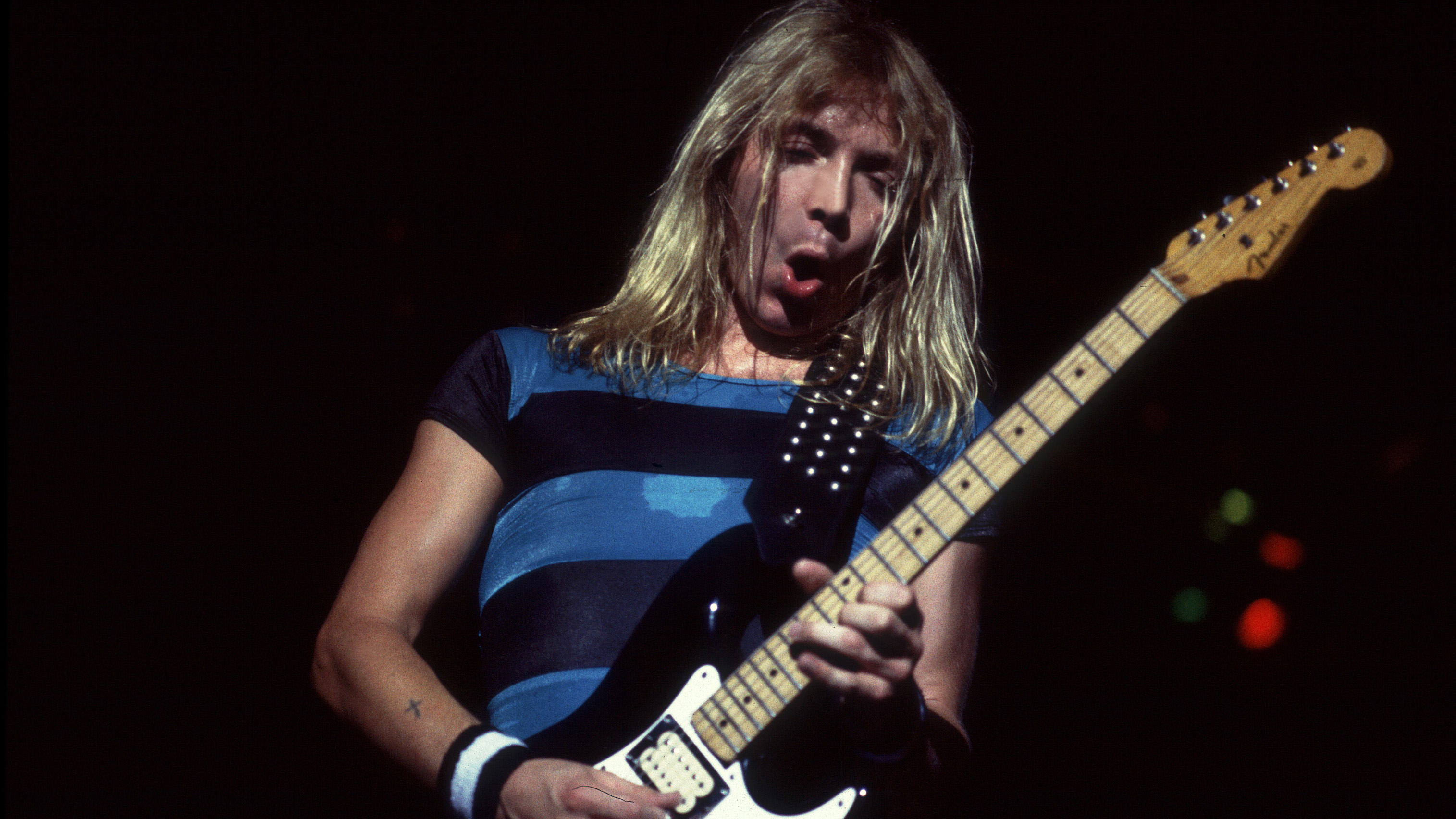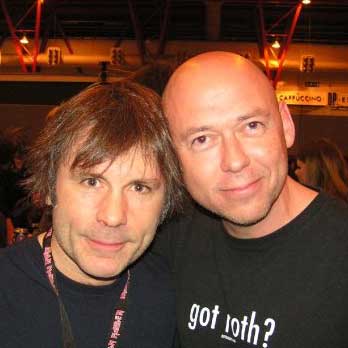“We’d gone backwards. We still enjoyed playing, but I did wonder how much longer the band would last”: Iron Maiden guitarist Dave Murray on the highs and lows of the band’s 50-year odyssey
“Maiden songs take you on a journey,” he says

Want all the hottest music and gear news, reviews, deals, features and more, direct to your inbox? Sign up here.
You are now subscribed
Your newsletter sign-up was successful
Iron Maiden guitarist Dave Murray says that he feared the band might have split up in the late ’90s — before the return of singer Bruce Dickinson and fellow guitarist Adrian Smith restored their popularity.
Maiden are celebrating their 50th anniversary in 2025 with the Run For Your Lives tour, which kicked off in Budapest on 27 May.
Murray, a permanent member of the band since 1978, tells MusicRadar that the toughest time they ever had was the period in the ’90s when Blaze Bayley was their frontman.
“Blaze was a great singer and a really nice guy,” Murray says. “I really liked him. But when Bruce left and Blaze joined we took a step backwards, really.
“Suddenly it was kind of like starting over again. We’d gone backwards after the initial after the momentum of going up.
“So in that period, we still enjoyed playing, but I did wonder how much longer the band would last.
“And then, just as suddenly, when Bruce and Adrian came back there was a rejuvenation.”
Want all the hottest music and gear news, reviews, deals, features and more, direct to your inbox? Sign up here.
Iron Maiden recorded two albums with Blaze Bayley — The X Factor (1995) and Virtual XI (1998).
Since the return of Bruce Dickinson and Adrian Smith in an expanded six-man line-up featuring three guitarists (Murray, Smith and Janick Gers), Maiden have made another six studio albums and played to sold-out arenas and stadiums across the world.
Murray says that the band’s audience is ever-evolving.
“There’s a lot of young kids out there,” he says, “or parents bringing their kids. Before, you’d have a certain age, but now it's expanded over generations, three or four generations.”
Looking back on Maiden’s long career, he adds: “It's kind of been like a rollercoaster. At the start we spent a lot of time traveling up and down all over the country. So it kind of started in London, and it just spiralled outwards and then eventually around the planet.
“It really started moving in the early ’80s, and we never stopped. We’d do an album and tour, album and tour…"
He admits that the World Slavery Tour, a year-long trek running from August 1984 to July 1985, was damaging for the band members' physical and mental health.
“I think we all went slightly off-kilter when we did that tour,” he says. “I think that put a couple of chinks in the armour.”
Murray reckons that Iron Maiden’s unique sound is due to the fact that many of the band’s definitive songs have been written by bassist Steve Harris.
“I think when Steve writes a song, there's definitely an identity to it,” he says. “And it's probably something a guitar player wouldn't write, some of the melodies and the time changes — and that’s great because it pushes you and stretches you as a player.
“The song has been shaped by Steve, and I think that's the beauty of it. With something like Phantom Of The Opera, the whole imagery of that song as well, it's got everything in there.
“I think that's what Maiden songs are — they take you on a journey.”
Murray says he has always been happy to take a back seat in Iron Maiden and leave the big decisions to Steve Harris, Bruce Dickinson and manager Rod Smallwood.
“You do need someone upfront, and Steve's had that from the very beginning. It’s between Steve and Bruce and Rod as well.
“Personally, I prefer to just be part of the team. I can be laidback and enjoy what I'm doing and not get upset by all the other bullshit that's going on around me.
"I’m fine being laidback. It takes a lot to annoy me, because to me it's a waste of time. I don’t need to have that anger.
“And lot of this stuff you can kind of channel through playing. Playing is like a form of self-therapy. So I don’t need anger management. I just enjoy playing the music.”
After all these years in the band, Murray says that Maiden’s music is still challenging to play.
“We're not just a twelve-bar blues band playing four chords, you know?”
But he has no interest in extra-curricular projects, unlike Harris, who has his second band British Lion, and Dickinson, who’s currently plotting a follow-up to his 2024 solo album The Mandrake Project, and also Adrian Smith, whose partnership with American guitarist Richie Kotzen has yielded two albums, the latest, Black Light/White Noise, released in March 2025.
“Don't get me wrong,” Murray says. “I go and jam with people, I do charity things for fun.
"Steve has got a lot of energy to be able to do British Lion, and I admire that, whereas for me it’s all-encompassing when I’m doing Maiden stuff but I know when to push the 'off' button.
“I don't really feel I need to go out and play in clubs and travel in the back of a tour bus — I think I've done that!
“But I really admire that Steve does that, and Bruce as well, and Adrian's doing his own thing. Good luck to them if they want to do that — it’s pure passion and the enjoyment of playing in whatever capacity, either in a big stadium or in a club.
“It’s pretty much the same playing for two hundred people or 20,000 people. You still have that emotional connection and the love of playing.”
After a lifetime in Iron Maiden, Dave Murray has only one regret. Like so many successful musicians, he missed out on family time while away on tour for months on end, year after year.
“You try and keep that bond going with your kids,” he says, “but obviously sometimes there are sacrifices to be made when you're pursuing this thing that you really enjoy doing.
“But with this 50th anniversary, it’s nice to take it all in and go, ‘Yeah, I've actually been able to juggle family and been able to do this without anything suffering.’”

Paul Elliott has worked for leading music titles since 1985, including Sounds, Kerrang!, MOJO and Q. He is the author of several books including the first biography of Guns N’ Roses and the autobiography of bodyguard-to-the-stars Danny Francis.
You must confirm your public display name before commenting
Please logout and then login again, you will then be prompted to enter your display name.
